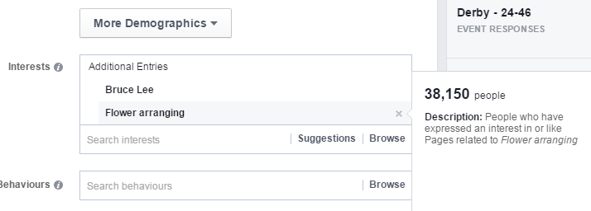
In a 2015 report by the Global Web Index, 177,000 surveyed users demonstrated an average of 1.72 hours per day on social media, with the UK coming in narrowly below this figure. Facebook is still eclipsing the competition for active users, so it's safe to say that a significant amount of this daily viewing is on this particualr network.
Something to consider in the above statistic is that this time may be split into many chunks; a quick check in the queue at a shop, responding to a facebook message, or just something to do while the kettle boils. Depending on how this time is spent, the knock-on in disruptions can be significantly more.
Another point to bear in mind is that depending on the state of your Facebook profile, your news feed/invites may be cluttered with information that isn't of interest or importance to you.
It's easy to mindlessly browse social channels as a distraction, rather than an enriching social experience.
So here are some tips to avoid that and make sure those minutes/hours are maximised by optimising your Facebook user experience.
Review Friends List
We've all done it; had a chat with a friend of a friend of a friend for 20 minutes and ended up friends on Facebook. We've added people from long ago to be nosey. We've learned more about someone from the types of things they post which either don't interest us, or at times appall us.
The first way to de-clutter your feed is to go through these friends, and hide or defriend them as appropriate.
Is Paul from school who I haven't seen in 15 years going to miss my friendship? I doubt it.
Facebook has to use certain algorithms to prioritise what you see on your timeline, but it can't detect your feelings. Streamlining your friend list to the people you like and want to interact with will help Facebook to do its job of prioritising content.
Review Likes
Your Facebook likes say a bit about who you are, what you care about and support. But for a marketer/advertiser, it helps to build a target audience for advertising campaigns.

You may find by going through your likes, that there are things that you liked for a laugh, or relate to the person you were a few years ago, but these could be used by Facebook to incorrectly target you when building ad audiences.
By reviewing the pages/people/activities etc that you've liked and making sure they give an accurate representation of you, you give yourself the best chance at the advertising you see being accurate and appropriate to you.
Choose Your Social Time Wisely
Now you've fine tuned your content stream, what you should see on Facebook should be more appropriate to who you are and what you like. And since reading this article on taking back your time, it's become apparent to me that social media has an impact on focus.
If it's used as a distraction, it takes away focus from whatever task you've interrupted, and also the way you read it won't be fully focussed either, so neither task wins. But by taking control of when you use Facebook, rather than letting it dictate to you when you need to give it attention (turning off notifications can really help this), all tasks will enjoy more attention and concentration.
The pointers above seem like very low priority tasks in the big picture that is real life. But when you consider the priority given to social media day to day, spending an hour or two on them now will improve your hour or two every day.
 By
By